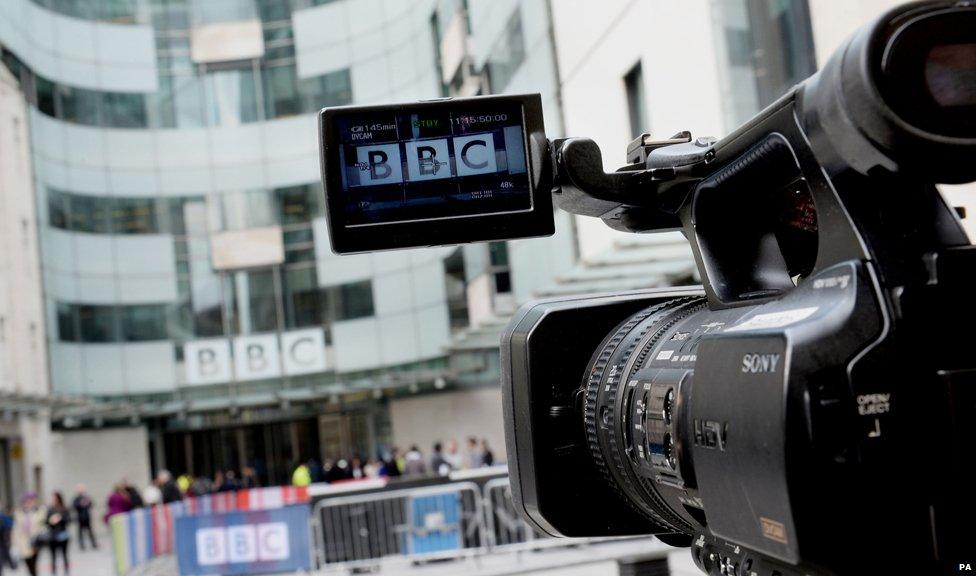Review goes to the core of the BBC's existence
- Published
- comments

Those who hoped today's consultation on the BBC would see the government "going to war" with the corporation will be disappointed. The tone of the document is not hostile. At times it sounds almost affectionate.
But the questions being asked, the areas selected for debate, amount to the biggest challenge to the BBC and its place in public life since its creation in the 1920s.
The government's argument is that the past two decades have seen both the media landscape and the BBC transformed. The internet, digital technology, smart phones and broadband mean that big newspaper groups and the BBC are now occupying the same territory - fighting for users in a digital world. Understandably, some commercial media companies would wish Auntie vacated the scene.
As the review document points out, "twenty years ago the BBC had just two television channels and five national radio stations. Now it is the world's largest Public Service Broadcaster, providing nine television channels, ten national radio stations with a huge online presence reaching millions of people every day."
The government asks whether its public funding through the licence fee "gives the BBC an unfair advantage and distorts audience share in a way that undermines commercial business models".
The Green Paper is a very business-focused document. In shaping the areas for review, no research or questions were asked of licence fee payers. It will be left up to the BBC Trust to tell the government what the people who actually pay for the service would like to see it doing.
And the review panel who will advise the government are all linked to companies or organisations which are or have been in competition with the BBC, according to Labour's shadow culture secretary Chris Bryant.
The tone may be warm, but the review questions go to the core of the BBC's existence. And the answers - expected in about three months' time - may seal its fate.